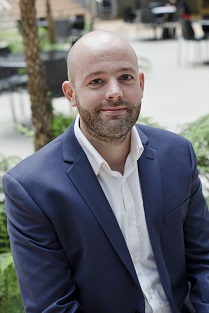 What drives or hinders the commercialisation of research – is there more we can do to help scientists bring ideas to market?
What drives or hinders the commercialisation of research – is there more we can do to help scientists bring ideas to market?
Research is changing, and translating core research into usage in the marketplace and in society is increasingly important. Scientists are therefore becoming more entrepreneurial and moving up the innovation chain; they not only have to shape initial research ideas, but they also act as research strategists who source research funds, manage people, resources, and labs, create new products and markets, and network with end users.
Effectively, many are becoming scientific entrepreneurs, like CEOs of small start-ups. These high performing researchers are known as publicly funded principal investigators.
So how are scientists adapting to these new expectations, and how do we harness the changing trend to support economic growth?
University of Otago Business School researcher Conor O'Kane is part of an investigation into the strategic behaviors of publicly funded principal investigators (PIs) - the lead researchers on successful programme and project grant applications, who take primary responsibility for shaping the collaboration and delivering the research.
In knowledge driven economies PIs occupy increasingly visible and influential positions that extend far beyond traditional scientific and research endeavours. Dr O'Kane is suggesting assistance to strengthen networks and relationships for this category of scientists may be key components.
“There is much emphasis on building innovation and developing technical capability to improve New Zealand's economy, but building relationships and social capital that links science, business and end users are equally important skills for developing new products and new markets. Learning how to collaborate effectively to better develop and exploit knowledge is now fundamental to building New Zealand's economy,” he said.
What the University of Otago is doing
Dr O'Kane is collaborating with colleagues in France and Ireland to study the role of publicly funded principal investigators in this changing research environment. They aim to understand and share insights on the strategic behaviours of principal investigators, how they initiate and manage their collaborations, and shape their knowledge outcomes.
It's expected that the findings will lead to practical ways of supporting principal investigators to become better research managers, and to develop effective business models around their research and knowledge transfer activities.
He's also looking at the key interactive processes between business, academia and university-based technology transfer officers. People in technology transfer roles have the difficult task of both understanding the science, and communicating market requirements back to researchers. “In essence they have a dual identity, one scientific the other business”.
Pinpointing how technology transfer agents can add value in this process will help to foster innovative and commercial activities that are hugely important, for universities and for regional economies.







